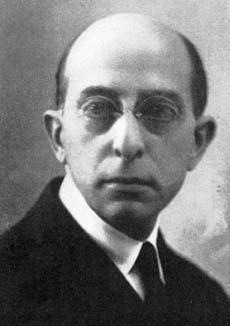


 تاريخ الرياضيات
تاريخ الرياضيات
 الرياضيات في الحضارات المختلفة
الرياضيات في الحضارات المختلفة 
 الرياضيات المتقطعة
الرياضيات المتقطعة
 الجبر
الجبر
 الهندسة
الهندسة 
 المعادلات التفاضلية و التكاملية
المعادلات التفاضلية و التكاملية 
 التحليل
التحليل
 علماء الرياضيات
علماء الرياضيات |
Read More
Date: 27-5-2017
Date: 31-5-2017
Date: 24-5-2017
|
Died: 1 October 1972 in Caracas, Venezuela

Francisco José Mariano Duarte was born in Maracaibo, where his father, Francisco Antonio Duarte Sánchez, was a general; his mother was Delfina Matilde del Carmen Isava Gonzalez de Duarte. He was the sixth of his parents ten children. He finished secondary school in Puerto Cabello and received his certificate-examination and the title of surveyor in February 1900. On 25 March 1908 he finished his studies at the University Central of Venezuela (UCV), qualifying as an engineer. He was professor of geometry, algebra, analysis and mechanics at UCV (1909-1911 and 1936-1939). Between 1920-1921 he undertook postgraduate studies at the Sorbonne in Paris.
For several years Duarte split his professional work between scientific investigations, teaching at universities, and occupying posts such as Consul of Venezuela in Geneva (7 January 1924-1929) and Director of the Astronomical and Meteorological Observatory Juan Manuel Cajigal (4 January 1936-1941). He also worked for many years as Director of Borders of the Ministry of Foreign Affairs (7 June 1941-1968), an occupation which saw him participate in delimitation of the Venezuelan borders with neighbouring countries, particularly with Brazil.
He was president of the School of Engineers (22 April 1937-1939) and the Academy of Physical, Mathematical and Natural Sciences (1941-1945 and 1954-1957) of which he was a member from 1933. In the period 1954-1956 he was Professor of Algebra in the private University of Santa Maria in Caracas.
José Nucete Sardi described Duarte in the following way (see [6], p. 9):-
He was a man who wanted to pass unnoticed, silent, who talked only to say just the right words to illuminate the concepts. He doesn't like publicity and used to avoid it and this all his friends knew ... . Really, he was a quiet person who didn't saying superfluous things.
Duarte judged that:-
Venezuela does not cultivate mathematics properly as a pure science.
On 27 May 1965 he became doctor honoris causa of University Central of Venezuela and on 12 February 1969 he received a similar honorary degree from the University of Oriente in Cuman'á. In 1967 he became a pensioner and was awarded the Order of Liberator Gran Cordon.
He participated in International Congresses of Mathematicians in Bologna (1928), Zurich (1932), and Boston (1950); Congresses of the Geodesic Union and International Geophysics in Madrid (1924), Prague (1928), Lisbon (1932), and Brussels (1951); International Congresses for the peaceful use of the atomic energy in Geneva (1955, 1958); and in the Assembly on the World Map in London (1928).
He was a Foreign Member of the Academies of Venezuela, Madrid, Colombia and Peru; the Mathematical Societies of the United States, Berlin, Palermo, Switzerland, Brussels, Spain; and also the Astronomical Societies of France, Germany, Mexico.
He died on 1 October, 1972, in Caracas. We use here Michalup's quotation ([4] or [10], p. 34 and [10], p. 51):-
The death of Dr Duarte means a great loss for the intellectual circles of the country. Personally, and as a scientific colleague of the Venezuelan Academy, I lost a sincere friend, who always was available when I needed him. I now regret deeply his absence in the sessions of the Academy.
Duarte's most important work in mathematics was done in algebra, number theory and mathematical analysis. His first work in mathematics was about which he presented to the Paris Academy of Sciences in 1907. He published papers on the general solution of a diophantine equation of the third degree x3 + y3 + z3- 3xyz = v3, simplified Kummer's criterion and gave a simple proof of the impossibility of solving the Fermat equation x3 + y3 + z3 = 0 in nonzero integers. He also observed that the interpolation formula of Everett is a consequence of the interpolation formula of Gauss. In 1908 he published an article where he calculated π to 200 decimal places.
His main three books are: Monograph on the numbers π and e. Historical and bibliographical notes (Spanish) (Bol. Acad. Cien. Fis. Mat. Nat. 11(1948)), with 27 chapters on 250 pages, which contains more information on π and e than has ever before been collected in one place; Lessons on Infinitesimal Analysis(Caracas 1943, 606 pp.) (Spanish) containing material from courses in analysis at UCV during his first three or four years there; and Bibliography of Euclid, Archimedes, Newton (Acad. Cien. Fis. Mat. Nat., Caracas 1963, 163 pp.) (Spanish) which was also done in the 19th century.
Many mathematicians are interested in recreational mathematics. Duarte also contributed to that part of mathematics and proposed problems and solutions to the American Mathematical Monthly for several years, and also to the journal Ciencia y Ingenieria (Science and Engineering) published in Mérida.
During all his life he maintained a permanent correspondence with scientists all over the world on inherent problems of his speciality and he has been considered one of the outstanding mathematicians of his epoch.
Duarte published seven books, over forty papers in mathematical journals, over twenty problems in the American Mathematical Monthly, several articles in the press and reports including biographies of famous mathematicians.
Articles:



|
|
|
|
لصحة القلب والأمعاء.. 8 أطعمة لا غنى عنها
|
|
|
|
|
|
|
حل سحري لخلايا البيروفسكايت الشمسية.. يرفع كفاءتها إلى 26%
|
|
|
|
|
|
|
جامعة العميد تحتفي بذكرى ولادة الإمام علي بن أبي طالب (عليه السلام)...
|
|
|